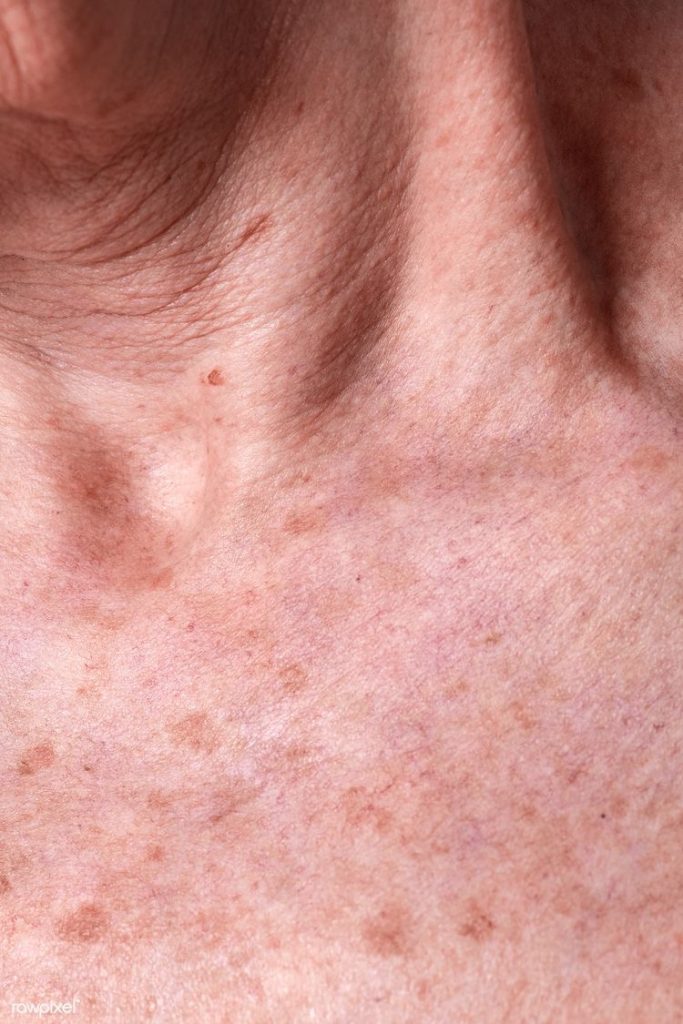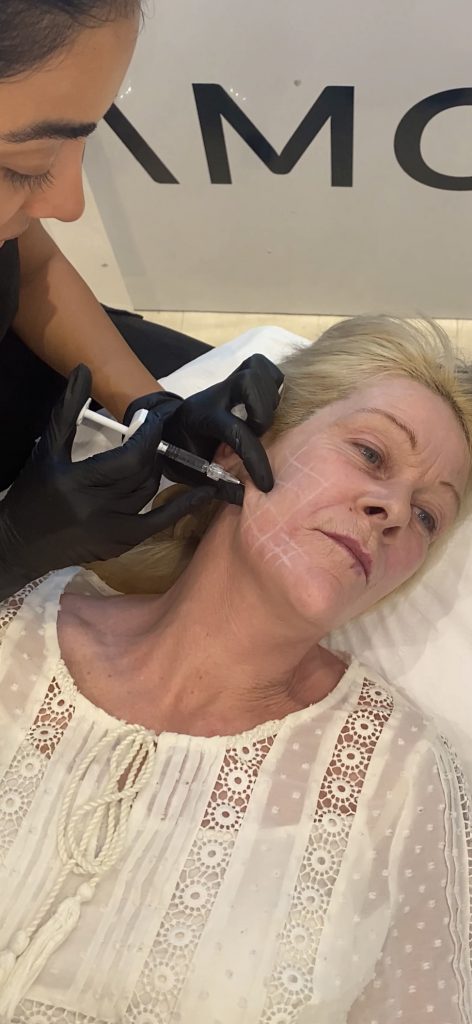Menopause signifies a significant transition in a woman’s life, representing the conclusion of her reproductive years. Beyond its reproductive implications, menopause also brings about hormonal changes that can profoundly affect various aspects of health, including the condition of the skin. In this blog, we will explore how menopause affects your skin and what you can do to maintain healthy skin as you age.
The Effects of Menopause on Skin Health:

Menopause triggers a cascade of hormonal changes that can have visible effects on the skin. Understanding these effects is crucial for developing a tailored approach to skin care during this life stage. In this section, we explore the specific ways menopause influences the skin, highlighting the importance of proactive measures to maintain its health and vitality.
Dryness and Wrinkles:
The decline in oestrogen levels during menopause contributes to skin dryness, thinning, and increased susceptibility to wrinkles. We delve into the underlying mechanisms behind these changes and provide evidence-based strategies to combat dryness and minimise the appearance of fine lines and wrinkles.
Acne:
Contrary to widely held belief, acne is not exclusive to adolescence. While often associated with the teenage years, the influence of acne can extend well beyond this phase of life. Menopause, a natural transition in a woman’s journey, can introduce significant hormonal fluctuations. These shifts can disrupt the delicate balance of hormones, leading to heightened sebum production, pore congestion, and the emergence of acne breakouts. Understanding the impact of hormonal changes during menopause is pivotal in addressing these skin challenges effectively.
Age Spots:

The decline in oestrogen levels during menopause makes the skin more susceptible to sun damage, leading to the emergence of age spots and hyperpigmentation. This is due to the compromised natural defence mechanisms of the skin against UV rays and environmental stressors. As a result, age spots and hyperpigmentation, characterised by darkened patches caused by an overproduction of melanin, become more prominent. Protecting the skin from the sun’s harmful effects becomes essential during menopause to prevent the exacerbation of these skin concerns.
Thinning and Sagging Skin:
Oestrogen plays a pivotal role in maintaining skin elasticity by stimulating collagen and elastin production. As oestrogen levels decline, the skin may lose its firmness and resilience, becoming thinner and more prone to sagging.
Rosacea:
Menopause can trigger the onset or exacerbation of rosacea, a chronic skin condition characterised by redness, bumps, and visible blood vessels. We explore the hormonal and environmental factors contributing to rosacea and suggest effective strategies for managing its symptoms.
Nurturing Healthy Skin During Menopause: What You Can Do Help Yourself

Fortunately, there are several proactive steps you can take to maintain healthy and radiant skin during menopause. In this section, we provide a comprehensive guide to nurturing your skin and counteracting the effects of menopause through practical self-care measures and evidence-based treatments.
Hydration and Moisturisation:
Ensuring your skin remains healthy and vibrant involves simple yet impactful practices. Staying hydrated and embracing moisturisers enriched with hyaluronic acid can prove transformative for your skin. Hydration, both from within by drinking ample water and externally through hyaluronic acid-infused moisturisers, works harmoniously to restore moisture levels and enhance skin suppleness. Hyaluronic acid, a natural component of the skin, possesses a unique ability to attract and retain moisture, resulting in a revitalised and more youthful complexion. By incorporating these practices into your skincare routine, you empower your skin to maintain its natural radiance and resilience.
Sun Protection:
Shielding your skin from harmful UV rays is vital during menopause. We emphasise the importance of wearing protective clothing and using broad-spectrum sunscreens with a minimum SPF of 30 – preferably SPF 50 – to prevent sun damage and reduce the risk of age spots and skin cancer.
Incorporating Retinoids:
Retinoids, derivatives of vitamin A, offer proven benefits in reducing the appearance of fine lines, wrinkles, and age spots. A powerful ingredient, Retinoids can be incorporated into an individual’s skincare routine progressively which allows the skin to build up adequate tolerance. The cell replenishing benefits of retinoids have been well documented and can be a huge step in mitigating some of the damaging effects that menopause can have on the skin.
Personalised Skin Consultation:

At L’Amour, we offer personalised skin consultations to tailor a skin care plan that addresses your unique needs during menopause. Our experts can guide you through customised treatments and provide professional recommendations to rejuvenate and nurture your skin.
Menopause is an inevitable phase of life that affects various aspects of a woman’s health, including her skin. By adopting a proactive approach to skin care during menopause, you can minimise the effects of hormonal changes and maintain a vibrant, youthful complexion. Our comprehensive guide empowers you with scientific insights and practical recommendations to navigate this transformative stage with confidence, ensuring your skin remains healthy and radiant.

